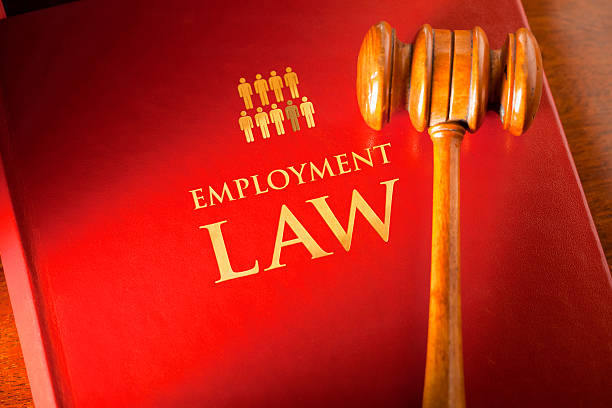Have you ever wondered what employment awards are and how they impact the Australian job market? If you’re searching for a job or are already employed in Australia, understanding employment awards is crucial. A modern award is a document which sets out the minimum terms and conditions of employment on top of the National Employment Standards (NES).
The National Employment Standards (NES) are a set of 10 minimum employment standards established under the Fair Work Act 2009 in Australia. These standards apply to most professional employees and provide a baseline of entitlements that cannot be overridden by employment contracts or agreements.
This article will explore what employment awards are, their importance in employment law, and their benefits to employers and employees.
What Are Employment Awards?
In Australia, employment awards (also known as modern awards) are legally binding documents that outline the minimum pay rates and conditions for specific occupations. The Fair Work Commission, a statutory body responsible for regulating the Australian workplace relations system, creates and maintains these awards.
The Fair Work Ombudsman sets out the official list of industry and occupation awards on their website. Each employment or relevant modern award covers a particular industry or occupation and addresses various aspects of employment, including:
- Minimum wages
- Working hours
- Leave entitlements
- Penalty rates
- Allowances; and
- Dispute resolution procedures
Why Are Modern Awards Important?
Modern awards are pivotal in maintaining fair and equitable workplaces across Australia. They set the baseline for minimum employment standards and ensure that workers are protected from exploitation. Here’s why modern awards are important:
1. Protection of Workers’ Rights
Modern or employment awards safeguard workers’ rights by establishing fair pay rates and conditions. They prevent underpayment and exploitation, ensuring that employees receive at least the minimum entitlements outlined in the awards. This protection is particularly crucial for vulnerable workers in low-paid industries.
For instance, let’s consider Sarah, a full-time hospitality worker. The Restaurant Industry Award guarantees her a minimum hourly wage, penalty rates for weekends and public holidays, and provisions for breaks and meal allowances. These applicable modern award provisions protect Sarah from potential wage theft and ensure she is fairly compensated for her work.
Another award is the Health Professionals and Support Services Award. This award is both an industry and occupational award designed to cover employers and employees operating within the ‘health industry’ and employees engaged as a ‘health professional’. This is the case if the health professional is employed in another industry.
We can also use the General Retail Industry Award as an example. This award covers a wide range of retail-related occupations and businesses, including department stores, supermarkets, clothing stores, electronics retailers, and more. It outlines the minimum pay rates, penalty rates, allowances, and other employment conditions that employers in the retail industry must adhere to.
2. Standardisation of Employment Conditions
With a vast range of industries and occupations, standardising employment conditions can be challenging. Employment awards simplify this process by providing a consistent framework for each sector. They establish industry-specific minimum standards, creating a level playing field and reducing discrepancies in pay and conditions between different businesses.
Let’s use the Manufacturing and Associated Industries and Occupations Award as an example. This award sets out minimum wages, overtime rates, and shift allowances for workers in the manufacturing industry. This award ensures that all manufacturing employees receive equitable treatment and helps maintain a balanced competitive environment within the sector.
3. Resolution of Workplace Disputes
Modern or employment awards also serve as a reference point for resolving workplace disputes. If an employee believes that their employer is not complying with the award provisions, they can seek assistance from the Fair Work Commission or relevant industrial relations bodies.
These bodies can mediate disputes, investigate claims of non-compliance, and enforce the rights and obligations outlined in the awards. By having clear guidelines in place, employment awards provide a transparent process for resolving conflicts and ensuring fair treatment for all parties involved.

How Do Modern Awards Work?
Now that we understand the importance of modern awards, let’s delve into how they work and how they affect employees and employers.
1. Coverage and Application
Each employment award specifies the industries, occupations, or types of work it covers. It’s essential for both employers and employees to determine which award applies to their specific circumstances. The Fair Work Commission’s website provides a comprehensive list of all modern awards, making it easy to identify the relevant award for a particular industry or occupation.
2. Minimum Pay Rates
Employment awards outline the minimum pay rates for different roles within the covered industries or occupations. These rates usually take into account factors such as skill levels, experience, and qualifications. Employers must ensure they pay their employees at least the minimum rates specified in the relevant award. Failure to do so can result in penalties and legal consequences.
3. Penalty Rates and Allowances
Penalty rates and allowances are additional payments that compensate employees for working outside regular hours, such as weekends, public holidays, or late nights. Employment awards define the specific penalty rates and allowances applicable to various circumstances. Additionally, employers must adhere to these rates when scheduling and compensating their employees for work performed during such periods.
4. Working Hours and Leave Entitlements
Employment and modern awards also cover working hours and leave entitlements. They specify the maximum number of ordinary hours an employee can work, as well as provisions for breaks, rest periods, and annual leave. These provisions help maintain a healthy work-life balance and ensure that employees receive sufficient rest and time off.
Tips for Employment Awards
Understanding and navigating employment awards may seem daunting at first, but with the right approach, you can easily grasp their nuances and utilise them to your advantage. Here’s a step-by-step guide on how to navigate employment and modern awards effectively:
Step 1: Identify the Relevant Award
Firstly, you need to identify the specific employment award that applies to your industry or occupation. The Fair Work Commission’s website provides a user-friendly search function that allows you to find the appropriate award quickly. Take the time to research and ensure you have the correct award as it will dictate your minimum entitlements.
Step 2: Study the Award Provisions
Once you’ve identified the relevant award, thoroughly read and understand its provisions. Pay close attention to sections outlining minimum pay rates, penalty rates, allowances, working hours, and leave entitlements. Familiarise yourself with the specific conditions and requirements that apply to your role within the covered industry.
Step 3: Communicate With Your Employer
Open communication with your employer is crucial when it comes to employment awards. Discuss which modern award applies to you with your employer to ensure they are aware of their obligations and that you understand your rights. If you have any concerns or questions about your entitlements, raise them in a respectful and professional manner.
Note: Employers are legally obligated to comply with the provisions of the employment award. By fostering open communication, you can help create a transparent and fair working relationship.
Step 4: Keep Records
It’s essential to keep accurate records of your working hours, breaks, leave taken, and any additional hours or shifts worked outside your regular schedule. These records will serve as evidence in case of any disputes or claims of non-compliance with the award.
Technology can be a valuable tool for record-keeping. Many employers use digital systems or apps to track employees’ time and attendance. Familiarise yourself with the system your employer uses and ensure the records accurately reflect the hours you work.
Step 5: Seek Advice and Assistance if Needed
Some employees believe that their employer is not complying with the award provisions and that they encounter any issues related to their employment entitlements. If this is the case, employees should not hesitate to seek legal advice and assistance.

Importance of Seeking Legal Advice
Employment awards can be complex, with numerous provisions and legal implications. Lawyers can help with your rights and entitlements under the specific award that applies to your industry or occupation. We at JB Solicitors can explain the intricacies of the award, ensuring you are aware of all the benefits and protections available to you.
Reach out to us to find out if you can avail more than one award.
